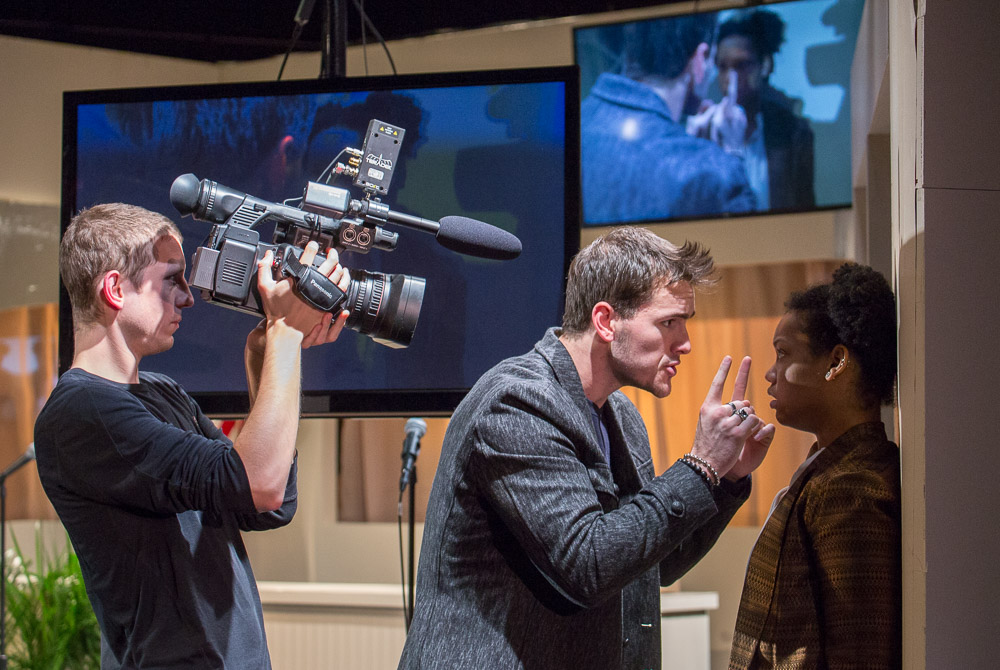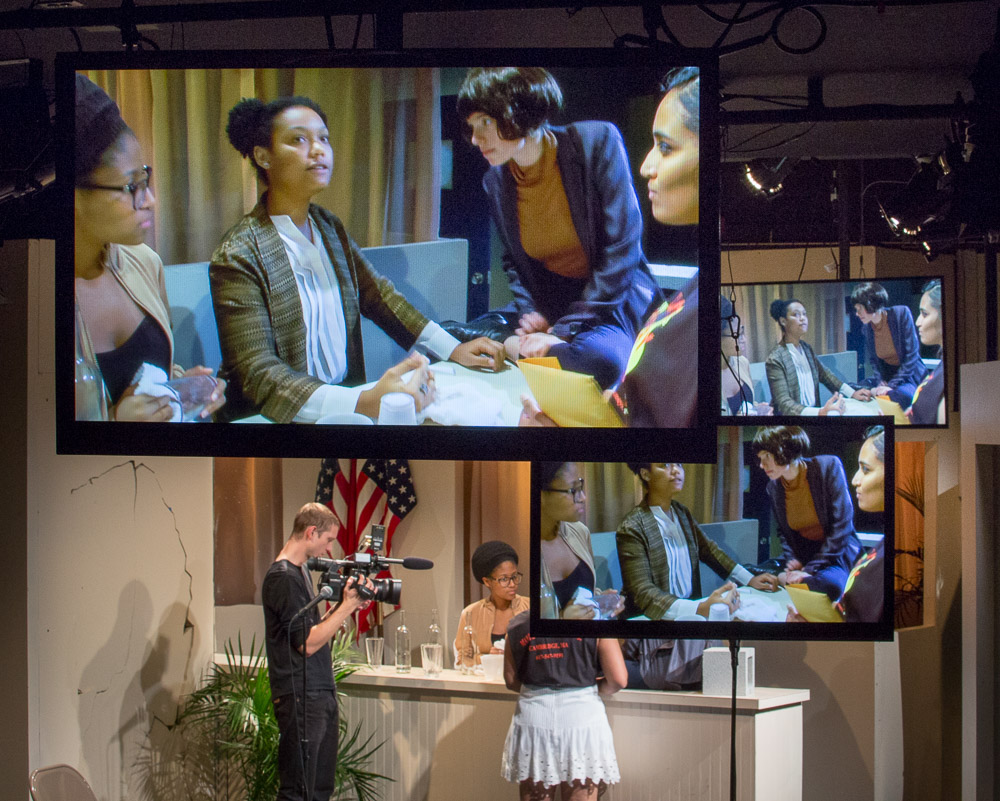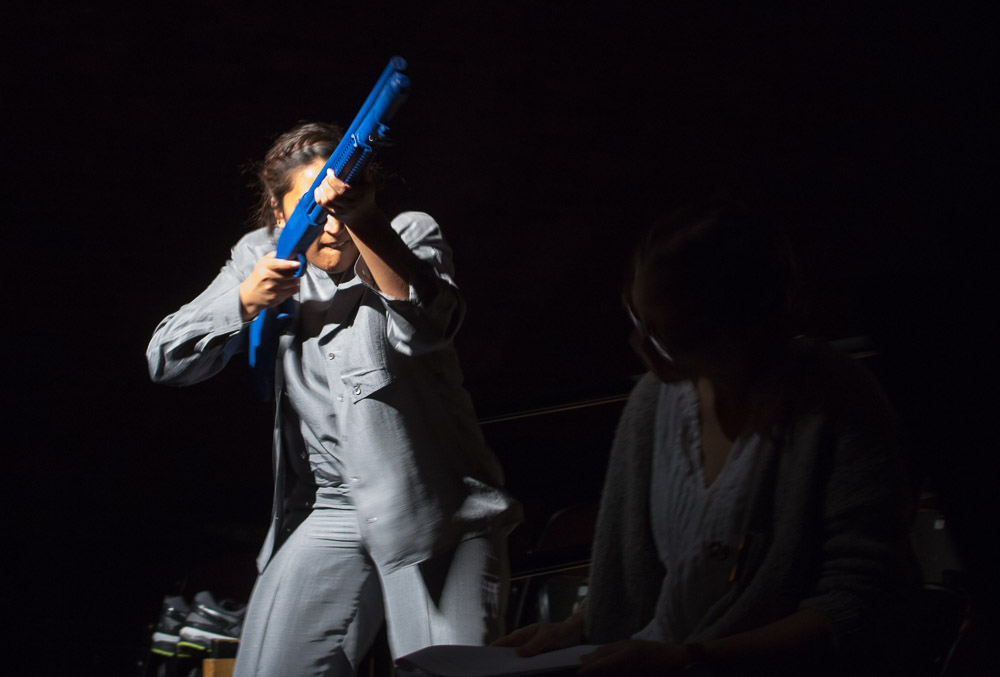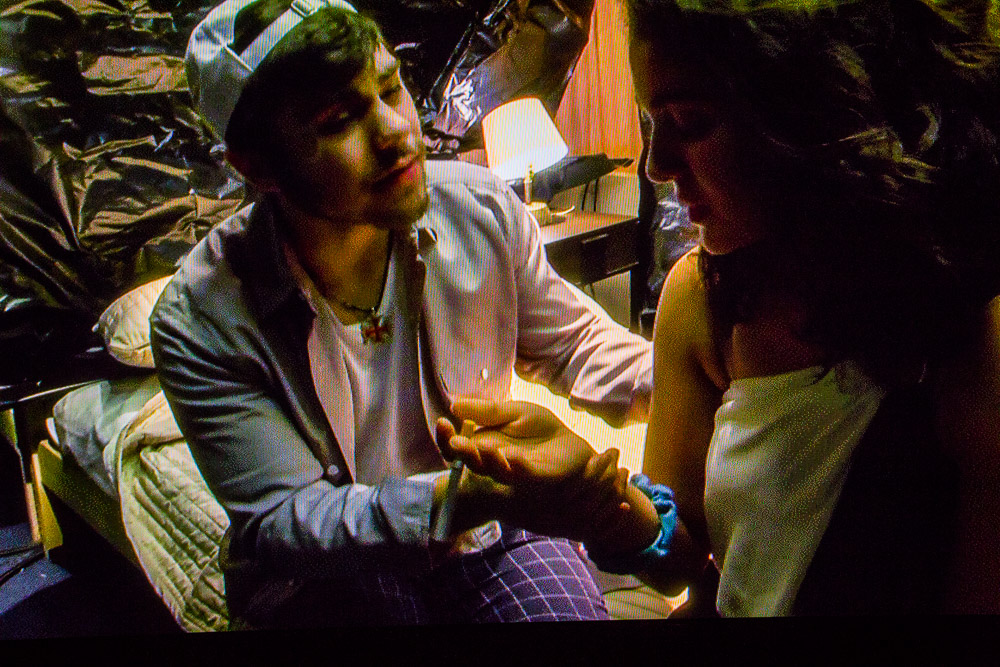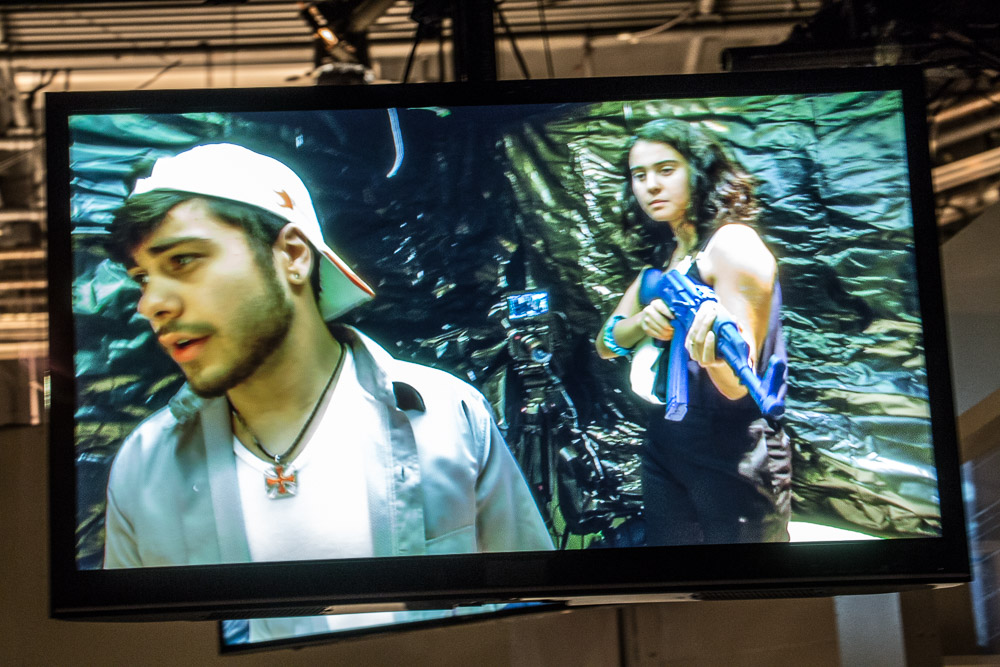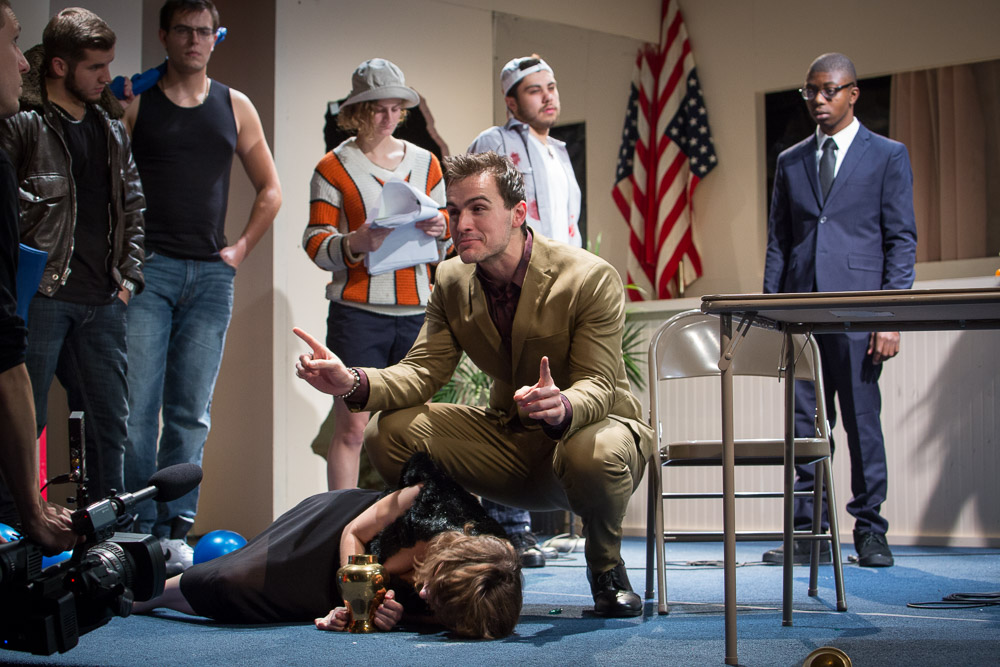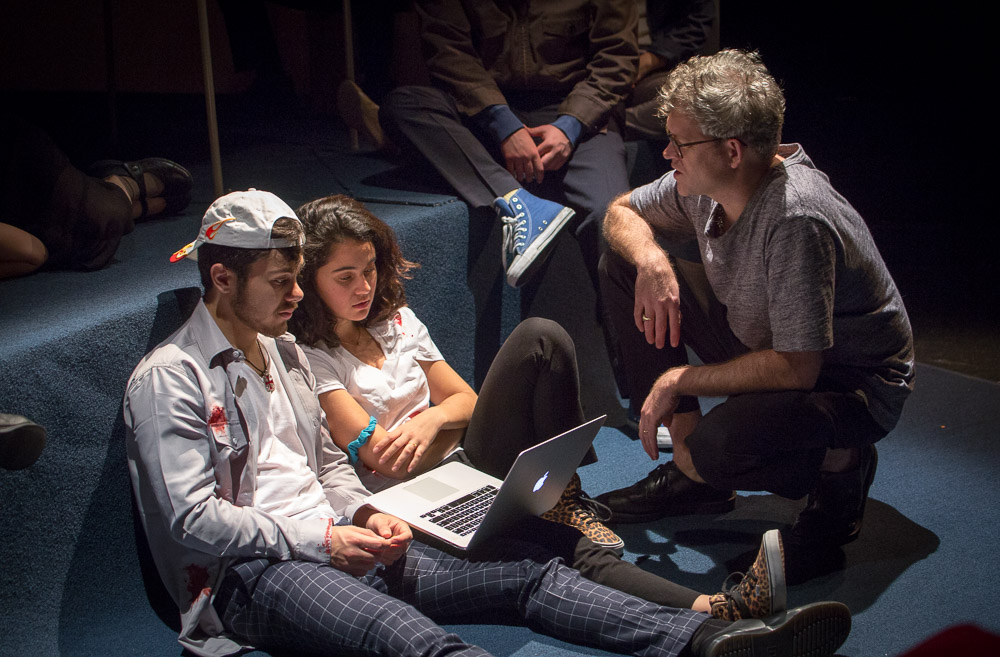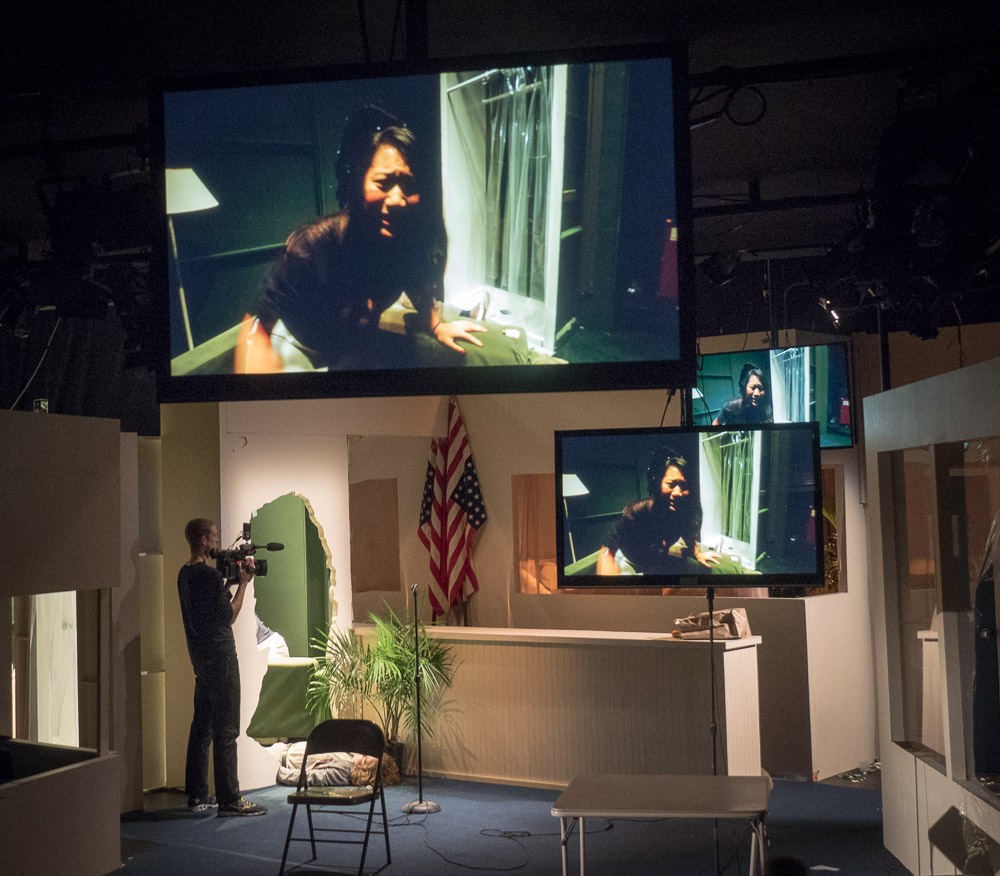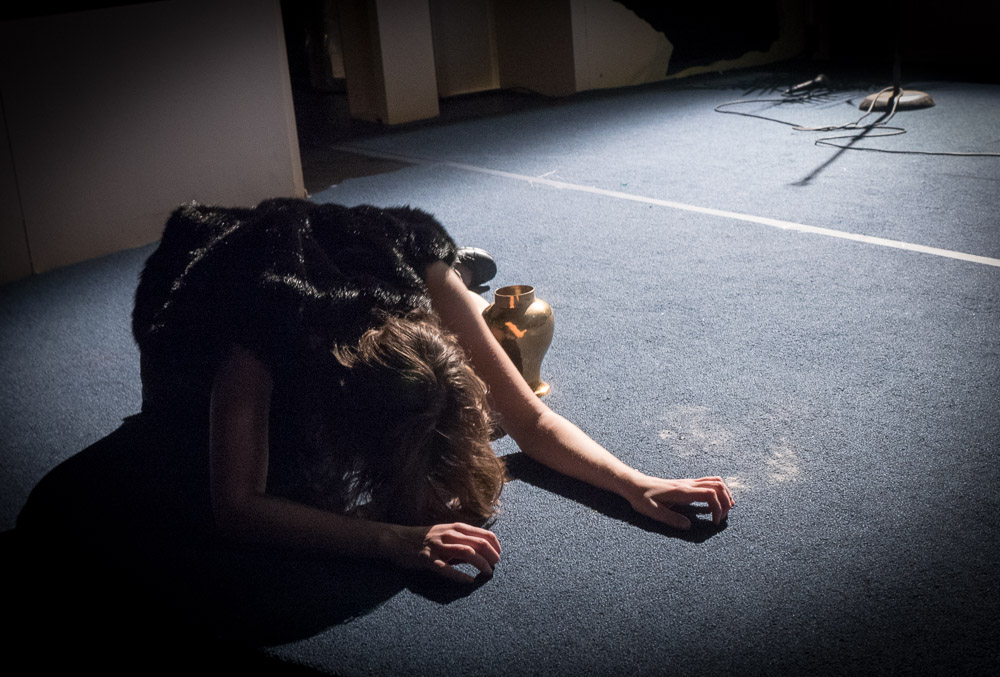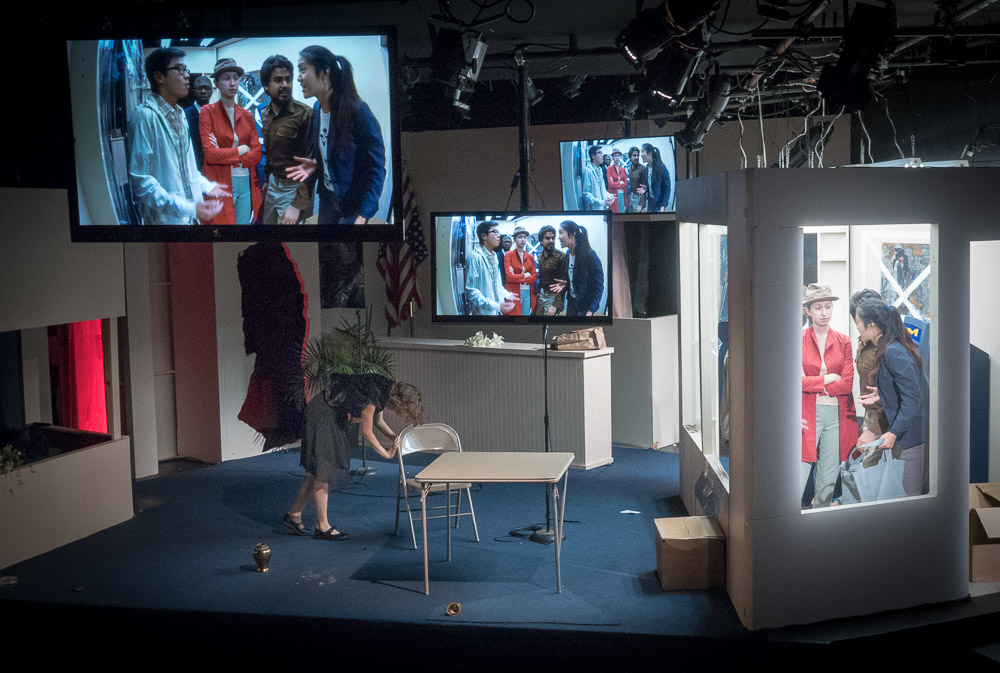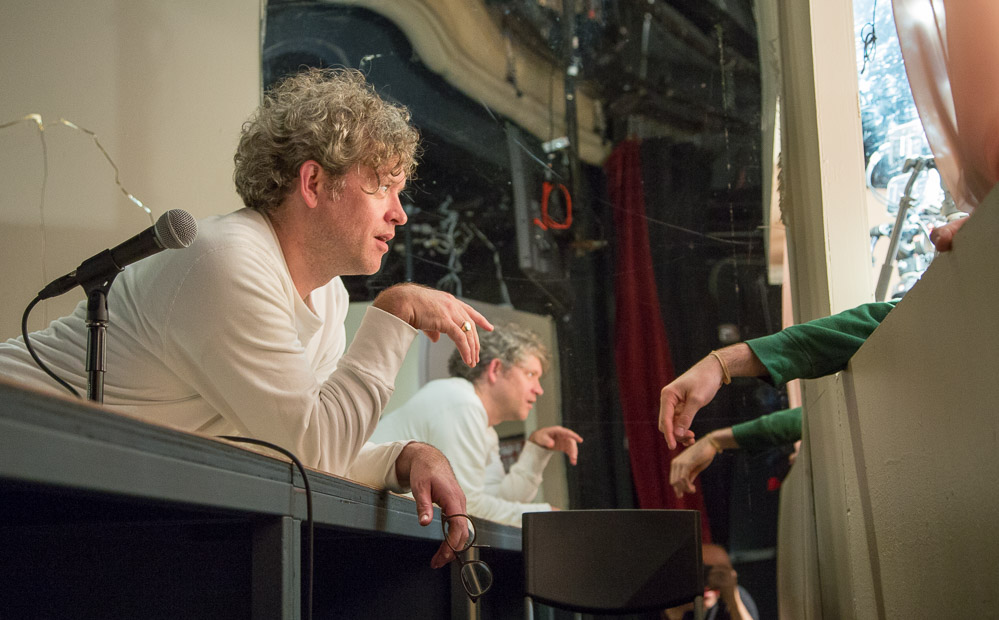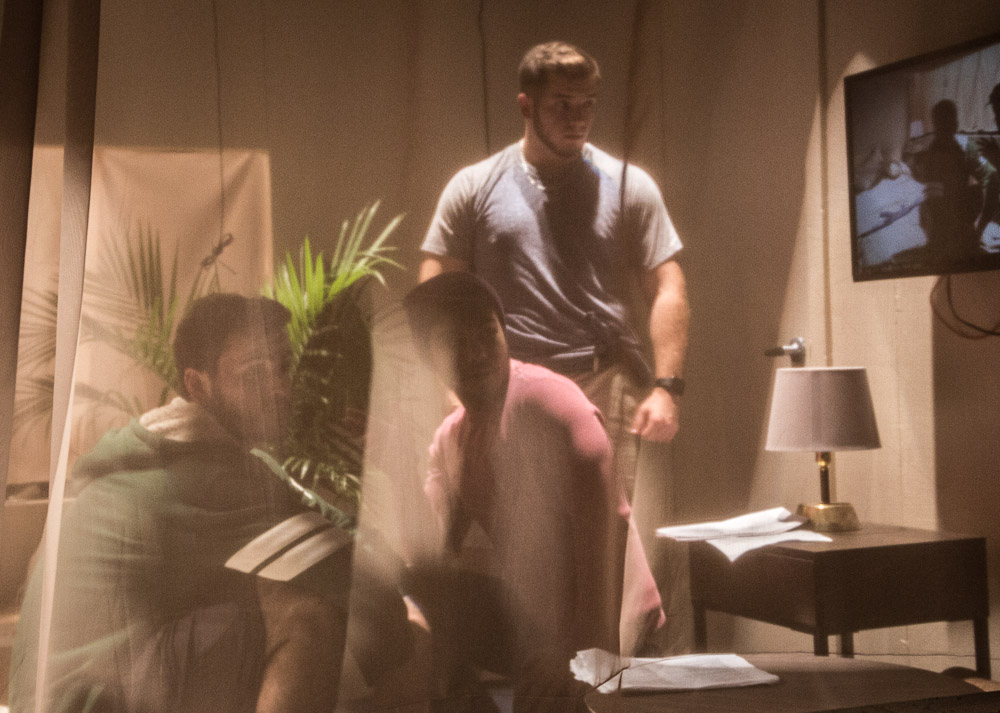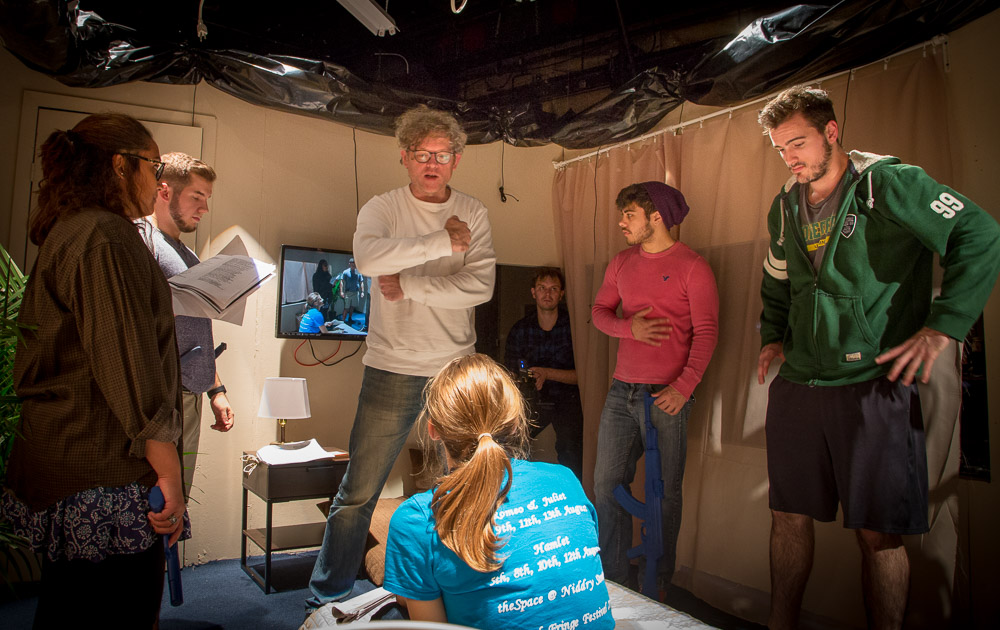Election day is finally here. MIT residents can vote at a polling station in the Lobby of Kresge Auditorium, and afterward reflect on political thuggery in a production of Bertolt Brecht’s The Resistible Rise of Arturo Ui, directed by Jay Scheib, and presented by MTA and MIT Dramashop. The final performance is tonight (November 8) in Kresge Little Theater at 8pm.
Scheib points out that politics and theater have long been entwined: “In the classical Greek theatre, the festivals were days long events and central to civic life. There would be four productions or more, and then people could vote. Come to the theatre, witness the spectacle and then argue about it with your friends—that’s democracy—at the birthplace of democracy. Then, a major political event would take place shortly thereafter. Theater played a role in the intellectual life of its community.”
The Resistible Rise of Arturo Ui, written by the great German dramatist Bertolt Brecht in 1941, savagely satirizes Hitler’s rise to power. In this thinly veiled parable about the Third Reich, Brecht uses the gangster movie as a model, transposing Nazi Germany to 1930’s Chicago. The title character, Arturo Ui, portrayed by MIT senior Garrett Schulte, is a thug turned politician—part Al Capone, part Richard III. Through corruption, intimidation and “spectacularly vile manoeuvres,” Ui stages a violent takeover of the green grocer trade. The cast includes twenty actors from across the Institute.
This multimedia, live performance, set in the ruins of a campaign headquarters in Cambridge, is a comic cautionary tale. During tech week, Scheib shared his thoughts on why this play is relevant in our current election cycle and what the rehearsal process entailed.
Why did you select this play for your students?
It was written in 1941 while Brecht was in flight. He fled Gemany. He wasn’t threatened directly, but he thought he would be. Most people didn’t know they were under threat until they were arrested. Insiders kind of knew, ‘I should get out of town.’ So he spent six years in different countries. Many subsequently fell to the Nazis. He was hiding in Helsinki when he wrote the play in three weeks.
He wanted it to be a calling card in the US, and he wanted it to be about how a thug in a capitalist food chain can rise through the ranks and enter politics. It seems like a familiar story these days—not to point any fingers at Donald Trump. But there are obvious parallels. Many of Trump’s earlier speeches were really similar to Arturo Ui’s, so we thought oh, let’s do this. It’s quite current. And the time we could get the theater happened to fall right at the election, so it seemed like a natural choice.
I noticed in the rehearsal that they improvise some of the lines. How do you approach script analysis in your rehearsal process? Do you have time to get into every line of text in painstaking detail?
We do address every line of text. Improvisation is a way of getting inside. I directed Mr. Puntila and his Man Matti in Augsburg, Brecht’s hometown. There, the text is sacred, and you don’t change the text because the Brecht Estate comes to the general rehearsal, and they’d be, like, “Get this out of here.” It’s a different world. The staff of the theater expected that my blasting an AC/DC song in one of the scenes would be an issue. But the Brecht Estate really liked it.
My goal is for the students to engage the material deeply and honestly. In the end it is for them to tell the story. That’s the deal we make with the audience. Sometimes that includes misbehaving. The letter of the text may not necessarily be something we’re ready for—and the translation suffers at times. Some of these actors are on stage for the first time.
Given so many characters on stage, blocking must be challenging. What’s more, there are scenes in which the audience sees the action on video monitors as well as viewing the actors on stage. With multimedia components, how did you compose a 2-dimensional scene as well as block the actors in 3-dimensional space? Are you instructing the actors in film acting and stage acting simultaneously? How do you combine it all?
To the best of my ability! Certainly, for some of the students, this has been a wild ride, although they all get it immediately. And it’s quite seductive to live inside of this world. I try to keep everyone aware of the various geometries and give the actors as much information as I can. I encourage them to control the composition. It’s new for many of our students. Composition doesn’t necessarily matter in the sciences — it doesn’t matter what color the microscope is—or maybe it does. For us, it’s vital.
The 2-dimensional and 3-dimensional challenges play out in so many different ways. The physical life of a partially seen, partially screened performance gets worked out first in the studio and then onstage. Many moving parts come together during the technical rehearsals. The first time we do it in the theatre can be scary. It’s a transformative moment. Especially with regard to costumes, it’s like ordering all of your clothes, wigs, shoes, etc. from a catalogue and then realizing, “I have to wear this tonight?… To a photo shoot?!” Of course, the scenes and things snap together in the end.
Brecht draws a parallel between Nazi Germany and 1930’s Chicago; either time or place would require a huge leap of the imagination for the students to portray. For this production, you’re bringing the comparison closer to our own political climate in the current election. What kind of research are they doing? How important is the history for this production?
They know the backstory. We have walked through the chronology of events that lead to the rise of National Socialism in Germany and discussed the big events as well as the lesser known events, like what was going on with Hindeburg, who in Brecht’s play parallels the character of Dogsborough. We follow those parallels, discuss them and find ways to incorporate details. We don’t spend that much time talking about Trump, nor do we want to. It’s not interesting to make a play about a bad guy who does bad things. We already know that bad guys will do bad things.
So to play Arturo Ui, is for us, not about playing a villain but rather about playing into the web of ambitions that overwhelm a charming but confused 21 year old. Everything he does, he feels like he’s doing for the good of the people. Even his misbehaving friends feel quite convinced of their arguments. He’s not just doing what he does out of some bland or even perverse sense of evil. He’s convinced of an idea, and it catches on. It’s unthinkable. The complicity is unthinkable. But then, the level of discourse in our political moment is also unthinkable. The Resistible Rise of Arturo Ui just keeps getting less funny. There are a lot of polls out there that show Trump winning the election. Do I think that’s possible? No, I can’t imagine a world where that would happen. But I lost that argument when George Bush won in 2000.
We’re incorporating live updates from the election into our closing night performance!

